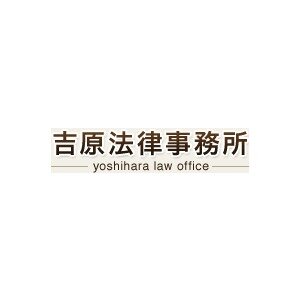Best Trusts Lawyers in Sapporo
Share your needs with us, get contacted by law firms.
Free. Takes 2 min.
List of the best lawyers in Sapporo, Japan
About Trusts Law in Sapporo, Japan
Trusts in Japan, including Sapporo, are established under the Trust Act of Japan, which provides the legal framework for their creation, administration, and termination. Trusts can serve various purposes, such as estate planning, asset management, and charitable activities. In Sapporo, as elsewhere in Japan, trusts are a popular tool for managing wealth and ensuring its smooth succession. Japan's legal system allows both individual and corporate trustees, and offers flexibility in addressing the specific needs of beneficiaries and grantors.
Why You May Need a Lawyer
There are several common situations where individuals or businesses may require legal help with trusts in Sapporo:
- Estate Planning: Setting up a trust to manage and distribute assets after one's death.
- Asset Protection: Protecting assets from creditors or during legal disputes.
- Tax Efficiency: Structuring a trust to achieve tax benefits.
- Trust Administration: Managing the duties and responsibilities associated with a trust.
- Dispute Resolution: Addressing disagreements between trustees and beneficiaries.
Legal experts can provide invaluable guidance in navigating the complexities of trust law and ensuring compliance with Japanese regulations.
Local Laws Overview
Sapporo, as part of Japan, follows the national Trust Act. Key aspects of these laws include:
- Creation of Trusts: Trusts must be established with a clear intention, a defined trust property, and a specified purpose.
- Trustees' Duties: Trustees are required to responsibly manage the trust's assets in the best interest of the beneficiaries.
- Fiduciary Duty: Trustees must act in good faith and avoid conflicts of interest.
- Beneficiaries' Rights: Beneficiaries are entitled to information about the trust and its administration.
- Modification and Termination: Trusts can be modified or terminated under certain conditions stipulated by law.
The law also mandates strict record-keeping and reporting requirements to ensure transparency and accountability.
Frequently Asked Questions
What are the main types of trusts available in Japan?
The main types of trusts include testamentary trusts, inter vivos trusts, and charitable trusts, each serving different purposes and subject to specific regulations.
Can foreigners establish trusts in Sapporo?
Yes, foreigners can establish trusts in Japan, including Sapporo, provided they comply with local legal and regulatory requirements.
Are trusts in Japan taxed?
Yes, trusts may be subject to taxes in Japan. The tax treatment depends on the type of trust and its setup, so legal advice is recommended for tax planning.
How long can a trust last in Japan?
Generally, trusts in Japan do not have a fixed duration, unless stipulated in the trust agreement. However, the purpose and terms should be clearly defined.
What powers does a trustee have?
A trustee has powers as defined in the trust deed, including managing, investing, and distributing trust assets, always in line with the beneficiaries' best interests.
Can a trust be contested in Japan?
Yes, trusts can be contested in Japan, usually on grounds like lack of intention, fraud, or a breach of fiduciary duty by the trustee.
Is it possible to modify a trust after it's created?
Modifications can be made to a trust if allowed by its terms or if all parties (including beneficiaries) agree to the changes.
What happens to a trust upon the death of the trustee?
If a trustee dies, the trust deed may specify a successor trustee. If not, a new trustee must be appointed as per legal guidelines.
Can a trust own real estate in Japan?
Yes, trusts can hold real estate in Japan. However, specific legal procedures must be followed to register the property under the trust's ownership.
How do I select a trustee?
A trustee should be trustworthy, financially knowledgeable, and capable of managing the trust’s affairs diligently. Often, professional or corporate trustees are chosen for their expertise.
Additional Resources
Several resources can assist those seeking trust-related information and help in Sapporo:
- Japan Trustee Association: Provides information on trust administration and management.
- Sapporo Legal Affairs Bureau: Covers the registration and legalities of trusts.
- Local Law Firms: Many law firms in Sapporo specialize in trusts and estate planning.
- Japan Federation of Bar Associations: Offers a directory of lawyers qualified in trust law.
Next Steps
If you're considering establishing a trust or need legal assistance with an existing one, start by consulting with a legal professional who specializes in Japanese trust law. It's advisable to gather any relevant documents and have a clear understanding of your goals and requirements beforehand. Schedule a consultation to discuss your situation and receive tailored advice that ensures your trust is set up and managed in accordance with your intentions and legal standards. Legal advice will also help you navigate any tax implications and protect your assets effectively.
Lawzana helps you find the best lawyers and law firms in Sapporo through a curated and pre-screened list of qualified legal professionals. Our platform offers rankings and detailed profiles of attorneys and law firms, allowing you to compare based on practice areas, including Trusts, experience, and client feedback.
Each profile includes a description of the firm's areas of practice, client reviews, team members and partners, year of establishment, spoken languages, office locations, contact information, social media presence, and any published articles or resources. Most firms on our platform speak English and are experienced in both local and international legal matters.
Get a quote from top-rated law firms in Sapporo, Japan — quickly, securely, and without unnecessary hassle.
Disclaimer:
The information provided on this page is for general informational purposes only and does not constitute legal advice. While we strive to ensure the accuracy and relevance of the content, legal information may change over time, and interpretations of the law can vary. You should always consult with a qualified legal professional for advice specific to your situation.
We disclaim all liability for actions taken or not taken based on the content of this page. If you believe any information is incorrect or outdated, please contact us, and we will review and update it where appropriate.










